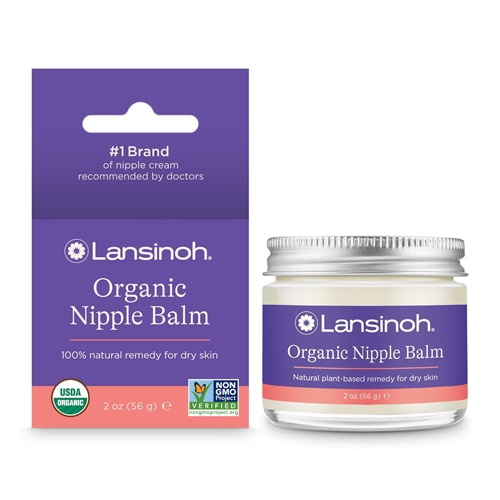[vc_row][vc_column][vc_column_text]Movies and television regularly broadcast idyllic scenes of motherhood, setting women up to expect only the best experience of being a new mother. While some new mothers do, in fact, experience only baby bliss, most experience a mix of baby bliss and baby blues, and some go through postpartum depression.
Postpartum depression (PPD) is a mood disorder characterized by feelings of sadness, anxiety and despair that many women experience after giving birth that lasts for more than two weeks.
While 1 in 7 women experience PPD, only 50% report these feelings, most likely due to shame and the stigma surrounding these postpartum feelings.
The first step to treating and managing postpartum depression is to acknowledge it and seek treatment. The more information available to women about PPD, the less shame they may feel knowing that it's a diagnoseable, common and treatable mood disorder.

What is Postpartum Depression?
Many women feel a mix of anxiety, mood swings, sleep disruptions and sadness after giving birth, most likely due to the rollercoaster of hormone fluctuations that can occur during this time. Plus, the responsibility of caring for a tiny person can make anyone feel anxious and nervous. These baby blues symptoms can last up to two weeks while your hormone levels even out and you adjust to being home with your newborn.
Postpartum depression is when you experience more intense feelings for longer than two weeks. PPD can interfere with your daily activities and your ability to bond and care for your baby. Symptoms of PPD can include:
- Feeling sad and hopeless
- Feeling guilty or worthless
- Feeling angry
- Mood swings
- Eating more than usual
- Sleeping more or less than usual
- Thoughts of harming yourself or your baby
Experiencing these feelings does not mean you're a bad mother. It's important to acknowledge feeling depressed and seek help.
Causes and risk factors for PPD
Anyone can experience PPD. It has no connection to your ability to be a good mother. Women experience PPD for various reasons, with the most common one being hormonal changes. After a woman gives birth, she experiences a drop in estrogen and progesterone production, two hormones that surge during pregnancy. Additionally, for some women, thyroid hormones may also drop after giving birth and contribute to feelings of depression.
Other changes that women face after giving birth, including weight gain and changes in appearance, sleep deprivation, feelings of being overwhelmed and angst over being a new mom, can all contribute to postpartum feelings of depression and anxiety.
You may be at higher risk of PPD if you have a family history of PPD or experienced PPD in a previous pregnancy. Additionally, you may be at risk of PPD if you (r):
- Have a history of depression
- Had a complicated or traumatic birth experience
- Baby has health issues or special needs
- Experienced stressful events in the last year, such as job loss, relationship problems or financial problems
- Have problems breastfeeding
Untreated PPD can last for months or longer, so it's important to reach out to a healthcare professional to get a proper diagnosis and personalized treatment plan. Fortunately, there are various treatments to help new mothers manage their symptoms.
How to Prevent or Treat PPD
While there is no way to prevent PPD, there are ways new mothers can help reduce their risk of developing it. Eating a healthy diet, getting
sleep (when possible), spending time outdoors and regular
exercise can help reduce your risk. Additionally, making sure you have support in place to help you adjust to having a newborn at home can help.
Seeking treatment when you recognize the signs and symptoms is vital to your and your family's well-being. The first step is to contact your doctor if your feelings of baby blues last longer than two weeks, occur within a year after you give birth or if you think you may be experiencing PPD.
Treatment options include medication, therapy and joining a support group or a combination of these options.
Medication
The most common medication for PPD is antidepressants. If you're breastfeeding or concerned about taking medication, talk to your doctor about the risks and benefits of treating your PPD with medication. According to the
Mayo Clinic, most antidepressants can be used during breastfeeding with little risk of side effects for your baby.
Therapy
Talking to a mental health provider, especially one that specializes in PPD, can help you work through and manage your feelings and symptoms. You can try therapy on its own or in conjunction with medication.
Support groups
Talking to other women going through similar experiences can help normalize your feelings and provide tools and strategies that can work for you. Ask your OB/GYN to recommend a support group in your neighborhood or look for one online.
Lifestyle supports
You can also make some changes at home that can help you cope or manage your feelings of depression and feeling overwhelmed. For starters, you can ask for help from your partner, a family member or a friend. Secondly, you can make time for self-care, whether it’s taking a
hot bath, eating well or getting enough rest. And, lastly, don't stay cooped up inside. Get outside and make time to socialize with friends and other new moms.
There is no shame in being diagnosed with PPD. Leaving it untreated can
potentially cause psychological and developmental harm to your baby. It's important to reach out and get professional help or family support if you're feeling sad or depressed so you can overcome these feelings and go on to experience baby bliss.[/vc_column_text][/vc_column][/vc_row][vc_row][vc_column][vc_text_separator title="Featured Products" border_width="2"][vc_row_inner equal_height="yes" content_placement="middle" gap="35"][vc_column_inner width="1/3"][vc_single_image image="186031" img_size="full" alignment="center" onclick="custom_link" img_link_target="_blank" css=".vc_custom_1751484754638{padding-right: 7% !important;padding-left: 7% !important;}" link="https://www.vitacost.com/upspring-milkflow-breast-milk-supply-support-chocolate-raspberry"][/vc_column_inner][vc_column_inner width="1/3"][vc_single_image image="186030" img_size="full" alignment="center" onclick="custom_link" img_link_target="_blank" css=".vc_custom_1751484766488{padding-right: 7% !important;padding-left: 7% !important;}" link="https://www.vitacost.com/lansinoh-herbal-postpartum-spray"][/vc_column_inner][vc_column_inner width="1/3"][vc_single_image image="186029" img_size="full" alignment="center" onclick="custom_link" img_link_target="_blank" css=".vc_custom_1751484779144{padding-right: 7% !important;padding-left: 7% !important;}" link="https://www.vitacost.com/fairhaven-health-postnatal-multivitamin-essentials-with-dha-daily-support-for-postpartum-moms-and-newborn-babies"][/vc_column_inner][/vc_row_inner][/vc_column][/vc_row]





